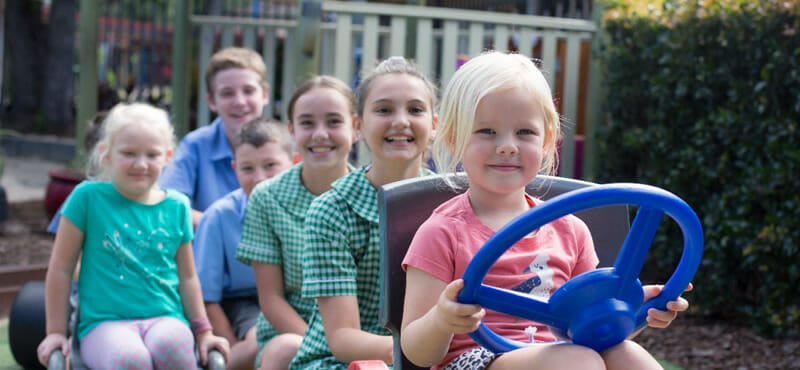
Some essential “school readiness” areas we cover with your child throughout the year:-
- Child Protection– awareness of how to stay safe at school, on the bus and the road.
- School Visits – regular visits to St Agnes’ Parish Schools to learn about school life.
- Fine Motor – Strengthening fine motor skills, so they can hold a pencil comfortably and cut with scissors.
- Pre Reading and Writing Skills – support your child to recognise and write their name, providing the children with a text-rich environment.
- Community Celebrations – promote a sense of respect, belonging, diversity, & difference.
- Literacy and Numeracy – promote recognition of numbers 1-10 and letters of the alphabet through play and everyday experiences.
- Social Skills – promoting respectful interactions with peers and educators.
- Self Help Skills – encouraging independence through basic skills to manage their needs without adult supervision, such as going to the toilet, dressing, unwrapping their lunch, asking for help and managing their belongings.
- Dramatic Play – encouraging school scenario role plays with props such as school uniforms, tables, chairs and whiteboards.
- STEM (Science, Technology, Engineering and Maths) – planned experiences that actively foster high-level thinking skills.
- Emotional Intelligence – supporting your child to manage their emotions, cope with minimal adult contact in large groups, focus on tasks, follow instructions from teachers and understand the rules.
- Language Skills – engage in experiences that require talking and listening to adults and other children, such as News Time.
- Cognitive Skills – Engage children in small groups to encourage basic number sense, thinking and turn-taking skills.
Your preschooler’s transition to formal schooling is a big deal, a time for celebration!
But as a parent, you may be feeling anxious.
The school environment is a busy hive of activity with a jam-packed curriculum to work through.
With generally one teacher at the helm. In a class of up to 30 children aged 5-6 years old.
Yep, that sounds like a lot is happening.
So, how can you be sure your child is ready to thrive?
Preparation throughout the year before school is an excellent start. And where possible, engage your child in a school readiness or transition to school program.
What is a school readiness or transition to school program?
Most importantly, school readiness is an assessment of the whole child.
Implementing evidence-based, play-focused activities that nurture social, emotional, cognitive and physical development opportunities for your child. And assessing their level of development based on their age and individual needs.
When thinking about children being ready for school, research shows us a child who demonstrates resilience and independence is well set up to thrive at school.
So, while pre-reading, writing and numeracy skills are an advantage, they are not essential indicators that your child is school-ready.
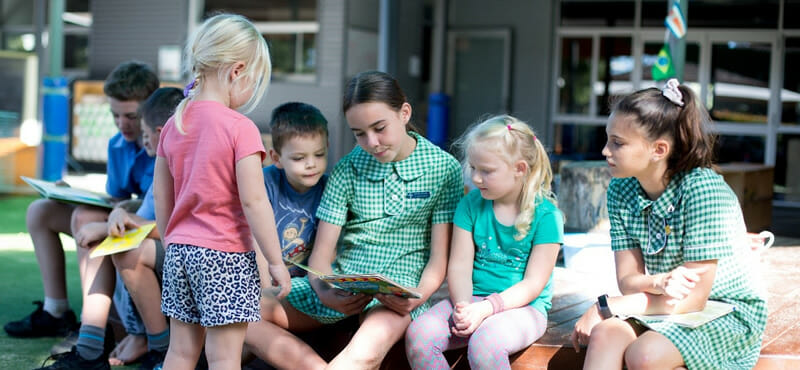
In collaboration with families, SJFS works to create individualised goals for your child. With the key objective to promote positive self-esteem and a sense of belonging from developing relationships. A child who feels loved and valued will have the confidence to learn effectively.
You can also check out raisingchildren.net.au as an excellent resource to gain more information on transitioning your child to school.
How You Can Help Prepare Your Child for School
Whether your child is attending preschool or not, the following suggestions will help your child transition to school with confidence.
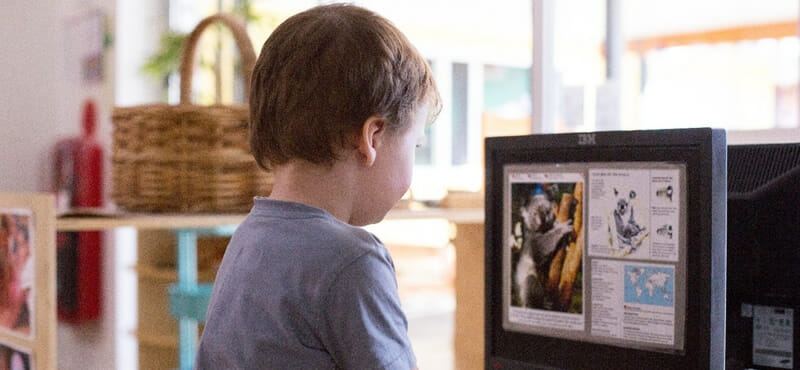
Talk positively about starting and attending school.
Speak with your child about their daily school routine; how will they get to school, what time they need to get up in the morning and what to pack in their lunch box.
Make some visits to the school with your child before they start.
Read books together about starting school.
Be involved in your child’s school community e.g. participating in playgroups and orientation days.
Arrange play-dates if possible, with other children starting at the same school. This extends the opportunity to develop their social skills and assurance they’ll have a friend to talk to when they start school.
Encourage your child to draw with a range of different materials, such as pencils, crayons and textas to help develop their fine motor skills.
Promote your child to dress and undress themselves, use the toilet independently, pack and open their lunchbox/drink bottle.
Initiate conversation with your child by asking them questions, listen to their answers, and encourage them to express themselves further about what they think and feel so they can communicate effectively with new friends and teachers.
Read with your child as often as possible. Fostering an enjoyment of reading develops early literacy skills and helps with their comprehension, vocabulary and language skills.
Help your child develop a basic awareness of numbers by helping at home. Counting out plates and cutlery to set the table and count the plates or counting as you go up and down stairs.
Play simple board and card games (like Memory Match and Snap). These games are great for practicing turn-taking, sharing, waiting and learning to cope with not winning!
If your child attends an SJFS centre, school readiness programming is an embedded practice for preschool aged children.
Our educators understand each child has individual interests, strengths and approaches to learning.
Working with your early childhood educator is a winning combination to support a positive transition to school for your child.
Please contact us for more information on SJFS Transition to School programs.
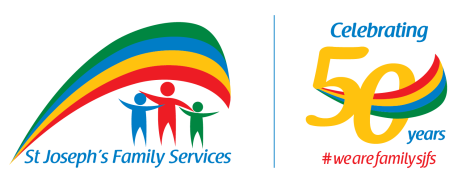

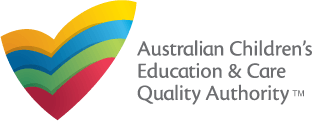



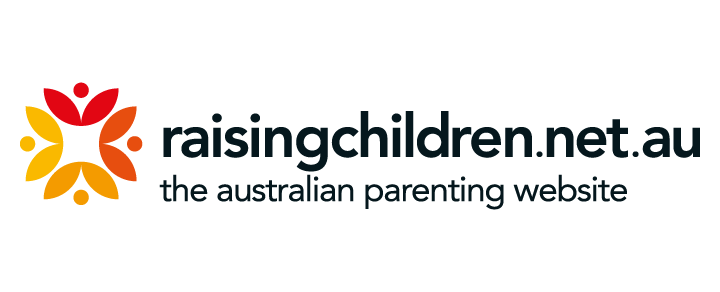
Leave A Comment